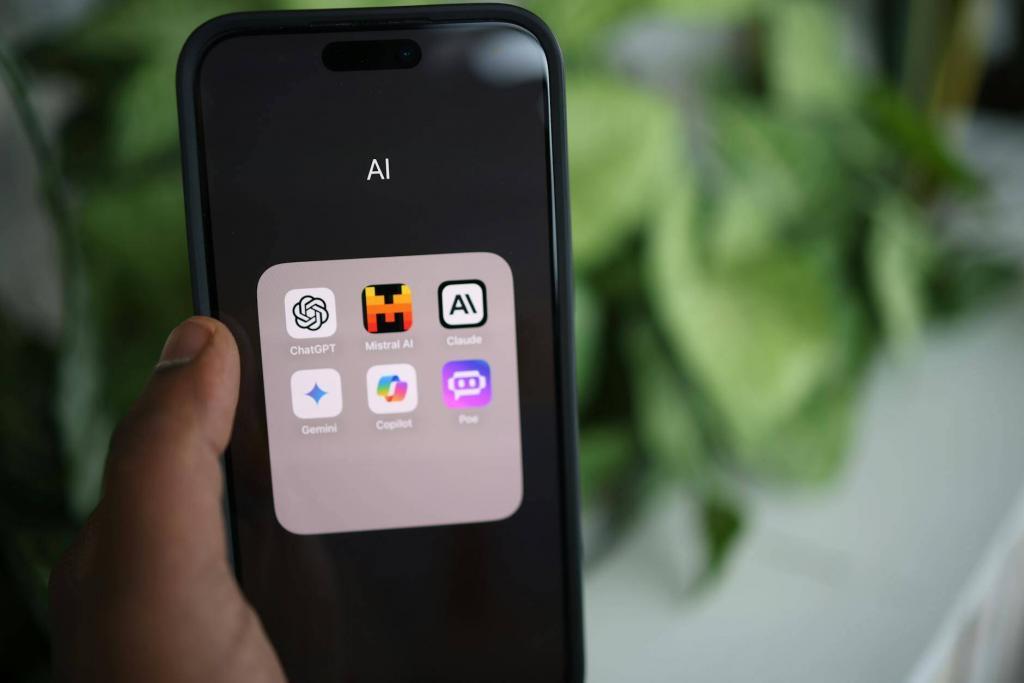We all get 24 hours in a day, but what if AI could help you reclaim some of that time?
AI has brought Productivity to a whole new level. When I wrote my book on Productivity, the world looked very different.
Today’s AI tools can simplify, streamline, and even fully automate the repetitive parts of your day, leaving you more room to focus on what matters most.
With all the options available, it can be easy to get lost in all the noise. This article aims to cut through that noise and help.
Here’s a guide to the most effective AI tools in 2025 that can lighten your workload, boost your Productivity, and help you take back your time.
We all get 24 hours in a day, but what if AI could help you reclaim some of that time?
AI has brought Productivity to a whole new level. When I wrote my book on Productivity, the world looked very different.
Today’s AI tools can simplify, streamline, and even fully automate the repetitive parts of your day, leaving you more room to focus on what matters most.
With all the options available, it can be easy to get lost in all the noise. This article aims to cut through that noise and help.
Here’s a guide to the most effective AI tools in 2025 that can lighten your workload, boost your Productivity, and help you take back your time.
🔹 1. For Writing & Communication: ChatGPT & GrammarlyGO
Use Case: Drafting emails, blog posts, social media captions, or rewriting content.
ChatGPT (Free & Plus): Ideal for brainstorming, summarizing, outlining, and answering questions.
Example prompt: “Draft a 150-word email update about a product delay in a friendly but professional tone.”
GrammarlyGO: AI-powered writing assistant that goes beyond grammar — it rewrites, tones, and edits to match your intent.
💡 Pro Tip: Use GrammarlyGO directly inside Gmail or Google Docs to speed up routine writing without switching apps.
🔹 2. For Scheduling & Admin: Motion & Clara
Use Case: Automatically manage your calendar, meetings, and task list.
Motion (AI calendar): Builds your to-do list into your schedule based on priority and deadlines. Great for ADHD brains or professionals who are overwhelmed.
Clara is an AI scheduling assistant that handles email-based calendar booking, handy for client meetings or sales teams.
💡 Time-Saver: Set up Motion to auto-reschedule tasks when your day changes — no more manual juggling.
🔹 3. For Notetaking & Knowledge: Mem.ai & Notion AI
Use Case: Capturing ideas and meeting notes to turn them into usable content.
Mem.ai: Automatically organizes your notes by context and people. It learns how you think.
Notion AI: Built into Notion, it summarizes long notes, creates tasks from meetings, and even writes first drafts from your bullet points.
🧠 Why It Matters: These tools create a second brain, so you don’t forget anything, and your ideas are always searchable.
🔹 4. For Repetitive Tasks: Zapier & Make.com
Use Case: Automate workflows between tools — no coding needed.
Zapier: Connect 5,000+ apps. Example: “When a new Google Form is submitted, create a task in ClickUp and send a Slack alert.”
Make (formerly Integromat): More advanced logic and complex automations than Zapier, ideal for power users.
⚙️ Examples:
Post new blog content to all your social platforms
Automatically label and store invoices in cloud folders
Get notified when your name is mentioned in Google Alerts
🔹 5. For Social Media: Ocoya & ContentStudio
Use Case: Plan, generate, and schedule social content with minimal effort.
Ocoya: AI writes captions and hashtags, then schedules posts across platforms — includes Canva-like design tools.
ContentStudio: Great for agencies or solo creators managing multiple brands. It also pulls trending content and analytics.
📲 Pro Tip: Create 30 days of social content in under 2 hours by using AI prompts, scheduling tools, and templates.
🔹 6. For Inbox Control: Superhuman & SaneBox
Use Case: Decluttering email and writing replies faster.
Superhuman: AI prioritizes your email and helps you write responses in seconds.
SaneBox: Moves low-priority emails out of your inbox and sends you a daily summary. It also auto-unsubscribes you from junk.
📥 Your New Inbox Rule: If it’s not urgent or important, let the AI handle it.
🔹 7. For Home & Personal Life: Alexa Routines & Google Bard
Use Case: Managing routines, reminders, grocery lists, and home automations.
Alexa Routines: Create smart triggers like: “When I say ‘good morning,’ turn on the lights, start the coffee, and play my calendar.”
Google Bard: Ask for recipes, quick research, or summaries while cooking or planning your next trip.
🏠 Bonus: Use AI-enabled smart plugs to automate lights, appliances, or devices — especially helpful for families or elderly users.
✅ Final Thoughts: Start Small, Automate Smart
You don’t need to overhaul your life to benefit from AI.
Start with one tool that solves a nagging issue in your workflow — maybe your inbox is overwhelming, or your calendar’s chaos. Once you feel the time-saving benefits, you’ll quickly see how layering in automation can create hours of breathing room each week.
Recap:
| Category | Tool | Use |
| Writing & Comms | ChatGPT, GrammarlyGO | Emails, blogs, content writing |
| Scheduling & Admin | Motion, Clara | Calendar, meeting booking |
| Note-Taking | Mem.ai, Notion AI | Smart notes, content generation |
| Automation | Zapier, Make.com | Connecting apps & automating tasks |
| Social Media | Ocoya, ContentStudio | Scheduling & AI-generated content |
| Inbox | Superhuman, SaneBox | Email triage & AI reply suggestions |
| Personal Life | Alexa, Google Bard | Routines, research, home tasks |
Ready to Get Started?
Pick one tool from this list and test it for the next 7 days. Let your future self thank you later.



